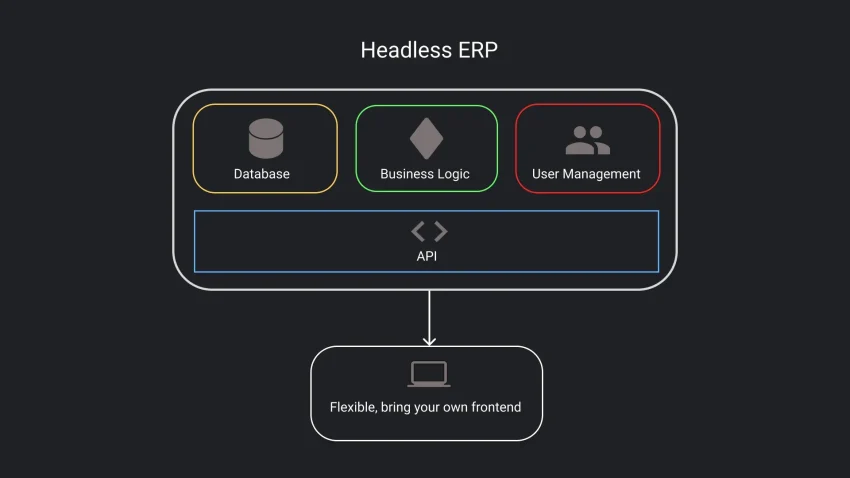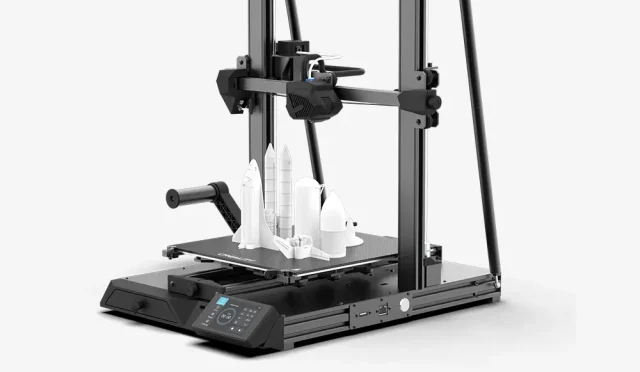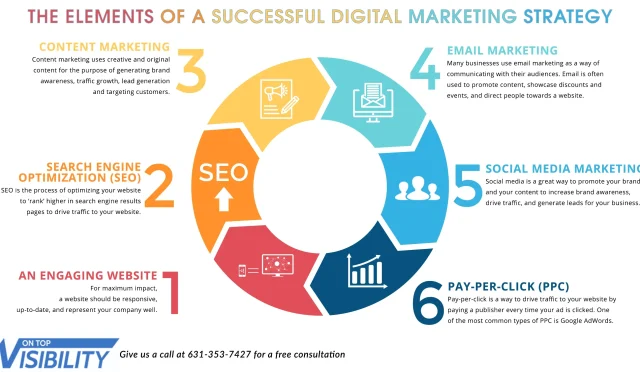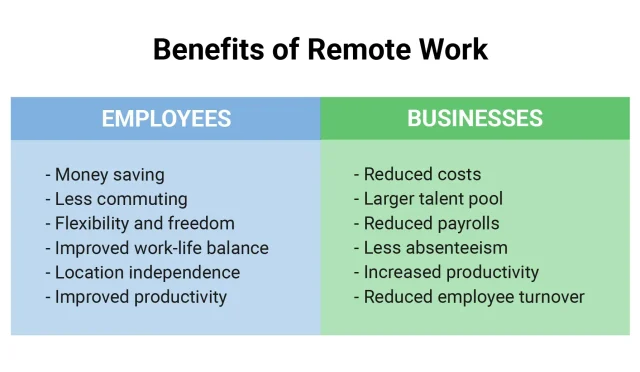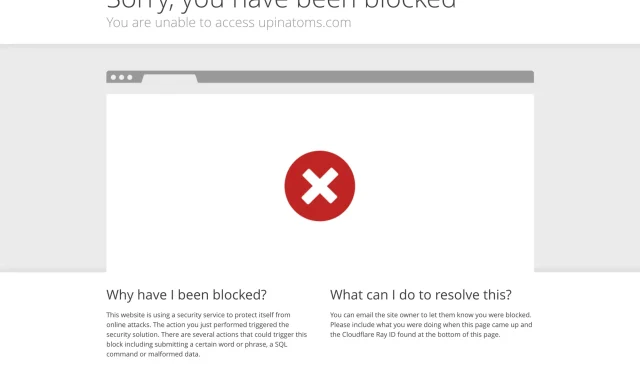Headless ERP: The Most Customizable ERP Platform 2025
In the rapidly evolving landscape of modern commerce, **Headless ERP** solutions are revolutionizing the way businesses operate. Unlike traditional enterprise resource planning systems, a headless ERP delivers unparalleled flexibility and customization, allowing organizations to build their own tailored ERP solutions that perfectly fit their unique needs. With the rise of low-code ERP platforms, businesses can now develop applications in a fraction of the time, integrating effortlessly with existing tools for omnichannel order management. The modular ERP architecture supports quick adaptation to market changes, enabling seamless connections across various sales channels. By harnessing these innovative technologies, companies can transform their operations and scale efficiently while improving customer satisfaction.
Businesses today are increasingly turning to flexible enterprise resource planning alternatives, often characterized as composable or modular ERP systems. These solutions enable companies to dynamically configure their operations and develop custom applications suited to their specific requirements. In this context, headless designs allow for greater customization, making them a preferred choice for many stakeholders. By embracing these advanced platforms, organizations can enhance their omnichannel management capabilities, ensuring a consistent experience across multiple sales channels. As industries continue to shift towards more tailored approaches, the demand for low-code structures and scalable enterprise systems is likely to grow.
The Advantages of a Headless ERP System
A Headless ERP system is designed to provide businesses with the flexibility and customization they need to adapt to changing market demands. Unlike traditional ERP solutions, which can be cumbersome and inflexible, a headless ERP allows companies to integrate various tools and technologies without being tied to a single vendor. This means businesses can choose the best components for their unique needs, enhancing overall efficiency and operational agility.
Moreover, the modular nature of a headless ERP system supports a low-code approach, enabling rapid development and deployment of new applications. Companies can build out their ERP functionality at their own pace, layering in features as needed. This is particularly beneficial for startups and rapidly growing businesses that require tailored ERP solutions without the long implementation times typically associated with traditional systems.
Custom ERP Platforms for Unique Business Needs
One of the key benefits of custom ERP platforms like Tailor is their ability to cater specifically to individual business requirements. Businesses often operate in niche markets or have unique processes that off-the-shelf solutions can’t accommodate. By utilizing a custom ERP platform, companies can ensure they have a system configured precisely for their workflow, which leads to more efficient operations and better ROI.
Furthermore, custom ERP platforms allow organizations to implement features tailored to their industry or sector. For instance, businesses in the manufacturing sector can benefit from specialized modules focusing on production management and inventory control, while e-commerce sectors might prioritize omnichannel order management. This level of customization is typically unattainable with standard ERP systems.
The Role of Low-Code ERP in Modern Businesses
Low-code ERP platforms are revolutionizing how businesses approach software development and management. With a low-code framework, companies can create and modify applications quickly and without extensive knowledge of coding. This democratizes software development, empowering a wider range of team members to contribute to ERP customization and enhancing responsiveness to market changes.
In addition, a low-code approach supports ongoing innovation within the organization. As business needs evolve, teams can rapidly iterate on existing functionalities or develop new applications, allowing for continuous improvement and optimization of processes. This capability becomes increasingly important in today’s fast-paced business environments, where agility can be a critical differentiator.
Exploring the Benefits of Modular ERP Systems
Modular ERP systems have emerged as a popular choice for businesses seeking flexibility and customization. These systems allow companies to choose specific modules that cater to their operational needs, rather than committing to a monolithic solution that may include unnecessary features. This targeted approach can result in cost savings and a more streamlined implementation process.
Moreover, the modular design of ERP systems enables businesses to scale their operations effectively. As organizations grow, they can easily add new modules to their existing system, accommodating increased functionality as needed. This makes modular ERP solutions an ideal choice for businesses that anticipate growth or changes in their operational landscape.
Optimizing Omnichannel Order Management with Tailored ERP Solutions
With the rise of online shopping and digital marketplaces, omnichannel order management has become essential for retailers. Tailored ERP solutions provide comprehensive tools that seamlessly manage orders across multiple sales channels, such as online storefronts, marketplaces like Amazon and Etsy, and brick-and-mortar locations. This ensures a smooth customer experience and helps to prevent conflicts such as stock-outs.
Adopting a tailored approach to omnichannel order management allows retailers to unify their sales processes and optimize fulfillment strategies. With real-time insights into inventory across various platforms, businesses can respond swiftly to demand fluctuations, ensuring that they meet customer expectations while maximizing sales potential.
Adaptive Inventory Management in Tailor’s Modular ERP
Effective inventory management is a cornerstone of successful retail operations. Tailor’s digital platform emphasizes dynamic inventory management systems that offer businesses the tools to reduce stockouts and optimize turnover rates. This adaptive approach enables companies to track inventory levels precisely, forecast demand correctly, and automate reordering processes, which significantly boosts operational efficiency.
Additionally, Tailor’s modular ERP allows companies to customize inventory management features according to their specific needs. Businesses can integrate their inventory systems with sales channels, ensuring they have a complete view of stock availability and customer demand. This level of detail supports better purchasing decisions and inventory planning, further bolstering profitability.
Tailored Solutions for Diverse Industries
Custom ERP platforms are incredibly versatile and can be tailored to fit a wide range of industries. Whether it’s manufacturing, retail, or B2B services, Tailor’s ERP can adapt its modules to meet specific operational needs. For instance, manufacturers can benefit from production management capabilities that streamline processes, while retail businesses can utilize omnichannel order management to integrate their online and offline sales efforts.
The ability to customize and configure functionalities within the ERP system means that businesses are not constrained by generic software capabilities. Instead, they can focus on implementing solutions that directly support their unique workflows and challenges, positioning them for success in their respective markets.
The Impact of Smart Purchasing Management on Business Operations
Effective purchasing management is integral to maintaining inventory levels and ensuring operational continuity. Tailor’s ERP solutions provide intelligent purchasing management tools that help businesses forecast demand and streamline the ordering process. By leveraging smart reorder suggestions and automation, companies can minimize manual tasks and ensure they always have stock available to meet customer needs.
Moreover, the integration of purchasing management with other modules in Tailor’s ERP system enhances the overall efficiency of the business. Real-time data insights allow for better decision-making regarding supplier relationships, pricing strategies, and inventory levels, ultimately improving the bottom line and responsiveness to market changes.
Integrating Technology for a Unified Business Ecosystem
In an increasingly digital world, the ability to integrate different technology platforms has become essential for operational success. Tailor’s headless ERP system facilitates seamless integration with a vast array of tools and applications, from e-commerce platforms like Shopify to accounting software such as QuickBooks. This open API-first architecture allows businesses to create a unified ecosystem that enhances productivity and collaboration.
Through robust integrations, Tailor enables organizations to optimize their workflows and reduce time-consuming manual processes. By ensuring that all systems communicate effectively, businesses can leverage data more strategically, improve customer experiences, and drive growth through more informed decision-making.
Investing in Future-Proof ERP Solutions
Investing in a future-proof ERP solution is vital for businesses seeking sustainable growth and adaptability. Tailor’s flexible, modular ERP system is designed to evolve with changing business landscapes, ensuring that companies can pivot quickly and effectively when new opportunities arise. This adaptability positions businesses to stay competitive and thrive in dynamic environments.
Furthermore, as technological advancements continue to emerge, having a headless ERP system like Tailor ensures that businesses are well-equipped to adopt new tools and functionalities as they become available. This forward-thinking approach maximizes long-term ROI and prepares organizations to meet the challenges of tomorrow.
Frequently Asked Questions
What is a Headless ERP and how does it differ from traditional ERP systems?
A Headless ERP is a modern, customizable ERP platform that separates the back-end management from the front-end user experience, allowing greater flexibility and integration capabilities. Unlike traditional ERP systems that bundle both functionalities, Headless ERP allows businesses to tailor their operations by utilizing a low-code setup for custom solutions and seamless integrations with various tools. This modular design enhances adaptability, making it ideal for evolving business needs.
How can Tailor’s Headless ERP support omnichannel order management?
Tailor’s Headless ERP excels in omnichannel order management by providing a unified platform for managing sales across various channels, such as online marketplaces like Shopify and Amazon, as well as in-store operations. This modular ERP approach allows businesses to customize order management workflows to fit their unique requirements, streamline processes, and enhance customer experience by ensuring accurate order fulfillment and inventory tracking.
Can Tailor’s Headless ERP be customized for specific business needs?
Yes, Tailor’s Headless ERP is designed to be highly customizable, allowing businesses to develop tailored ERP solutions that fit their specific operational requirements. With the use of a low-code platform, businesses can quickly build or modify applications, integrating with existing systems to create a seamless and efficient workflow that caters to their unique business model.
What are the main benefits of using a modular ERP like Tailor?
Using a modular ERP like Tailor offers several key benefits, including flexibility in adapting to business changes, the ability to select only the essential modules needed (such as inventory or order management), and simplified integration with other software. This headless ERP architecture ensures that businesses can scale their operations efficiently and maintain performance without being constrained by rigid traditional systems.
How does Tailor’s low-code architecture enhance development speed?
Tailor’s low-code architecture significantly enhances development speed by allowing users to quickly create custom applications or modify existing ones with minimal coding expertise. This means businesses can implement tailored ERP solutions in weeks rather than months, enabling rapid deployment and adaptation to changing market demands.
Is it possible to integrate Tailor’s Headless ERP with existing business tools?
Absolutely! Tailor’s Headless ERP features an open API-first design that allows for easy integration with a variety of existing business tools like QuickBooks, ShipStation, and more. This functionality ensures that users can optimize their workflows and maintain seamless operations without disrupting current systems.
What industries can benefit from Tailor’s Headless ERP solutions?
Tailor’s Headless ERP solutions are designed to benefit a wide range of industries, including omnichannel retail, B2B and DTC operations, and manufacturing. Its customizable and modular nature makes it suitable for any business looking to streamline their operations and enhance their adaptability in a competitive market.
What types of functionalities does Tailor’s modular ERP offer?
Tailor’s modular ERP offers a variety of functionalities including inventory management, omnichannel order management, production management, cost accounting, and purchase management. This diverse range of features allows businesses to customize their ERP system according to their specific operational needs.
How does Tailor address the issue of stock-outs with its ERP platform?
Tailor’s ERP platform tackles stock-out issues by providing features that allow for precise inventory level tracking and demand forecasting. With the help of automated replenishment processes, businesses can ensure they have the right products on hand at all times, thus minimizing stock-outs and improving customer satisfaction.
What is the pricing structure for Tailor’s Headless ERP solutions?
Tailor offers a transparent pricing structure based on usage, where businesses only pay for the modules they require. There are no hidden costs or user fees, and the pricing includes hands-on implementation, training, and ongoing support, ensuring clarity and peace of mind for users.
| Key Point | Description |
|---|---|
| Funding | Raised $14M in Series A funding led by ANRI and Spiral Capital. |
| Tailored Solutions | Tailor offers a customizable and developer-friendly low-code platform, enabling faster development tailored to specific business needs. |
| Integrations | Robust integration options with popular tools like Shopify, QuickBooks, and more, allowing for a seamless operational experience. |
| Pricing Model | Simple, transparent pricing structure with no hidden fees, allowing clients to pay only for what they use. |
| Composable ERP | A headless, modular approach that adapts to the scale and complexity of modern operations. |
| Use Cases | Applicable in various sectors including B2B, DTC, and manufacturing, enhancing channel unification and inventory management. |
| Real-time Operations | Empowers businesses to manage inventory, orders, and production in real time for better efficiency. |
Summary
Headless ERP is transforming the landscape of enterprise resource planning by offering unparalleled flexibility and customization. Tailor’s headless ERP solution stands out in its market, enabling businesses to adapt quickly to changing demands while enhancing operational efficiency through robust integrations and a user-friendly platform. With its modular features, transparent pricing, and focus on real-time data management, it’s crafted to meet the diverse needs of modern businesses, making it an ideal choice for retailers and manufacturers alike.
#HeadlessERP #CustomizableERP #ERP2025 #BusinessAutomation #NextGenERP

